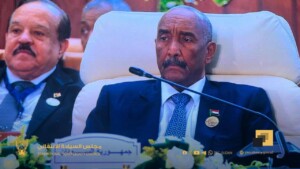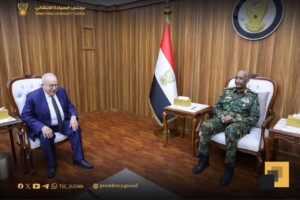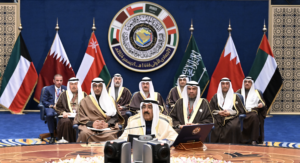‘Sudan unilateral cease-fire is result of US pressure’: SPLM-N
The Sudan People’s Liberation Movement-North (SPLM-N) has expressed its doubts about the intention behind the four-month cease-fire for South Kordofan and the Blue Nile states announced by President Omar Al Bashir on 17 June.
According to Malik Agar, chairman of the SPLM-N, the unilateral cease-fire is “merely a declaration of intent, as any cease-fire agreed-on by the parties in dispute requires monitoring and enforcement mechanisms”.
The Sudan People's Liberation Movement-North (SPLM-N) has expressed its doubts about the intention behind the four-month cease-fire for South Kordofan and the Blue Nile states announced by President Omar Al Bashir on 17 June.
According to Malik Agar, chairman of the SPLM-N, the unilateral cease-fire is “merely a declaration of intent, as any cease-fire agreed-on by the parties in dispute requires monitoring and enforcement mechanisms”.
In an interview with Radio Dabanga, broadcast on Saturday, Agar pointed out that the fighting in the Two Areas was due to be halted anyhow because of the rainy season.
The rebel leader said that that the cease-fire declaration is the result of American pressure. He explained that earlier this year, the Sudanese Foreign Minister, Dr Ibrahim Ghandour, the US Secretary of State, John Kerry, and the US Special Envoy to Sudan agreed on the text of an indefinite cease-fire accord that was to be observed by American monitors. The accord also dealt with the normalisation of relations between the two countries.
The USA would play a role in persuading the Sudan Appeal opposition forces to sign the AU Roadmap, to ensure a gateway for peace negotiations tracks without conditions, and to form a committee to monitor the implementation of the cease-fire. The name of Sudan would be deleted from “lists that were not identified”, the rebel leader said. The accord should be implemented of the items before the current US President Barack Obama would leave in January.
'Large losses'
Agar sharply condemned the Sudanese government's second 'dry summer campaign' against the SPLM-N combatants in South Kordofan and the Blue Nile states. Khartoum sent large numbers of Rapid Support Forces (RSF) militiamen along army troops to the war-torn areas to “definitely eliminate the insurgency”. The SPLM-N leader stated that the government troops “did not achieve one victory. They only suffered large losses in the two regions”. He accused the RSF paramilitaries of killing, molesting, raping, and robbing civilians on a large scale.
Sudan Appeal
Regarding the differences between the opposition forces allied by the Sudan Appeal agreement, Agar commented that “these issues should be solved as soon as possible, as any delay exacerbates the suffering of the Sudanese people. Therefore the aim of the next Paris meeting is to agree on a basic structure and programme of the Sudan Appeal forces”.
Sudan Appeal
On 3 December 2014, representatives of the Sudan Revolutionary Front (SRF) rebel alliance, the National Umma Party (NUP), the National Consensus Forces (NCF, a coalition of opposition parties), and the Civil Society Initiative (CSI), signed the Sudan Appeal in Addis Ababa.
In the two-page political communiqué, the allied opposition forces calls for the ending of the civil wars in the country, the dismantling of the one-party system, and the rebuilding of Sudan based on democratic principles and equal citizenship. The Sudan Appeal signatories agree that if a peaceful regime change cannot be achieved by a broad national dialogue, it should be enforced by a popular uprising.











 and then
and then